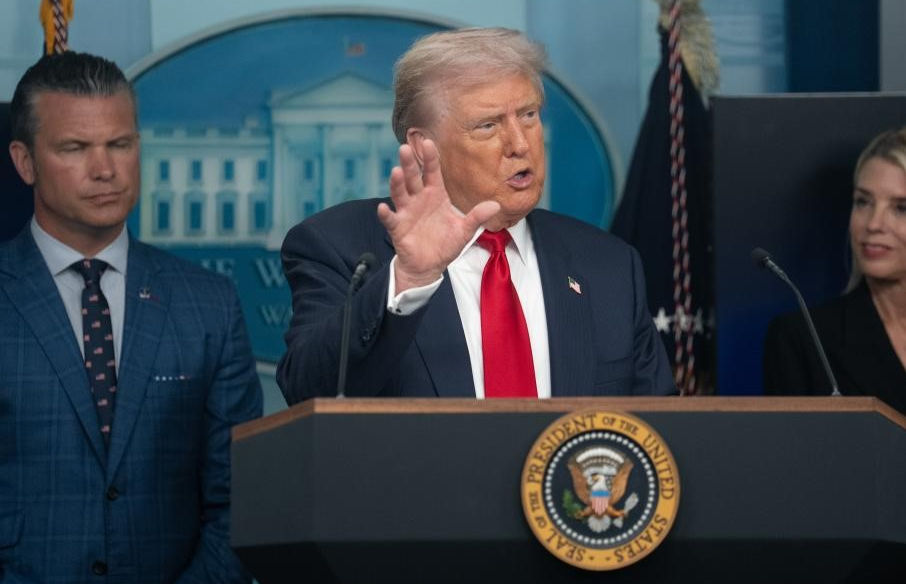President Donald Trump’s recent remarks on granting 600,000 student visas to Chinese nationals have set off a political firestorm—not from the usual critics on the left, but from the very voters and voices that propelled him into the White House. The backlash on the right has been swift, fierce, and unrelenting, exposing a critical tension between Trump’s America First economic instincts and the cultural-nationalist base that helped define his political movement.
At the core of Trump’s argument is economic realism: American universities, particularly those outside the top tier, rely heavily on international tuition dollars to keep the lights on. “You take out 300,000 or 600,000 students out of the system,” Trump told reporters, “and our college system would go to hell very quickly.” He’s not wrong. Many U.S. institutions are financially dependent on foreign enrollment—especially students from China, who pay full freight in cash.
But here’s where the consensus begins to fracture.
The backlash from conservative commentators, lawmakers, and activists centers not on dollars, but on trust. Trust in the security of America’s intellectual property. Trust in the loyalty of Chinese nationals vetted by the CCP. And trust in the broader university system, which many believe has become a breeding ground for ideological indoctrination and anti-American sentiment. To them, this isn’t about economics—it’s about sovereignty.
Rep. Marjorie Taylor Greene didn't mince words: “If refusing to allow these Chinese students to attend our schools causes 15% of them to fail then these schools should fail anyways.” That sentiment was echoed across X (formerly Twitter), where voices like Liz Wheeler and Josh Peterson flatly declared: “Ban them all.” Their concerns aren’t theoretical. The CCP’s practice of leveraging overseas students and scholars for tech and defense-related espionage has been well documented, and their infiltration of academia has become a persistent national security issue.
Then there’s the ideological critique—one that Trump himself has often voiced in other contexts. Conservative lawyer Marina Medvin captured it neatly: “So this is essentially a subsidy for academia. Got it.” Why, critics ask, should American taxpayers and policymakers be propping up a university system that has, in their view, become hostile to conservative values and dismissive of working-class American students?
This, in many ways, is Trump caught between two instincts: the businessman and the nationalist. The businessman sees a systemic failure looming if international students are pulled en masse—college closures, job losses, real estate crashes in college towns. But the nationalist sees a country whose institutions are vulnerable to exploitation and infiltration from a geopolitical adversary. The tension is real, and in this case, the base isn’t giving Trump a pass.
Commerce Secretary Howard Lutnick’s attempt to frame the decision in purely economic terms—claiming the visas will shore up weaker colleges and allow top American students to “move up”—only deepened the resentment. To many on the right, the issue isn’t who gets into what college. It’s who gets into the country.
And then there’s the broader context: a precarious trade détente with China, a rare-earth magnet showdown, and Boeing parts being wielded like economic sabers. Trump’s saber-rattling—“If they don’t give us magnets, we charge them 200% tariffs”—is vintage Trump. But pairing that with a softening stance on visas for Chinese nationals struck many as incoherent at best, contradictory at worst.
Meanwhile, China’s dominance in rare-earth magnet production and the U.S.'s dependency on them remains a critical weakness in America's economic and national security posture. The fact that Beijing lifted curbs on magnet exports just as trade talks resumed suggests strategic calculation—not generosity. Trump’s harsh tone on tariffs may be a negotiating tactic, but the visa offer looks to some like a concession, not leverage.
What remains to be seen is whether this issue will harden into a political liability. In 2016 and 2020, Trump thrived on clear lines: Us vs. Them. Globalism vs. America First. This policy, however, muddles that clarity. And for many in the conservative grassroots, the idea of playing host to 600,000 students from a country they see as actively undermining American values and institutions feels like betrayal—wrapped in an Excel spreadsheet.



